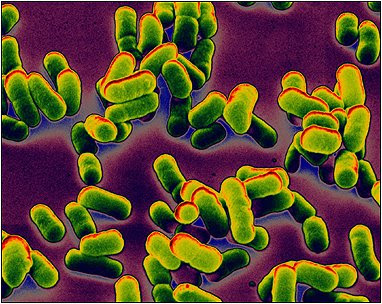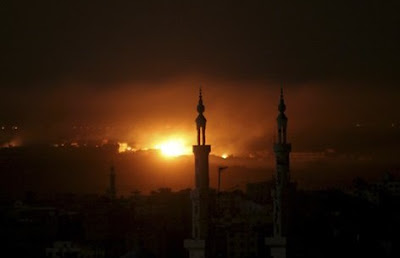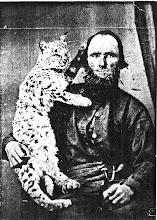 Attorney Stanislav Markelov
Attorney Stanislav MarkelovMOSCOW – A Russian human rights lawyer renowned for his work on abuses in Chechnya was shot to death Monday by a masked gunman who followed him from a news conference, officials said. A young journalist who tried to intervene also was gunned down.
The broad-daylight shootings of lawyer Stanislav Markelov and journalist Anastasia Baburova prompted grief and outrage in a country where lawyers and journalists who challenge the official version of justice are frequently targeted.
Markelov had fought the early release of a Russian colonel whose killing of a Chechen woman in 2000 put names and faces on the gruesome rights abuses in the war-wracked region. His death Monday angered many Chechens, already upset by the release of last week of the military officer.
Colleagues drew comparisons with the 2006 killing of investigative journalist Anna Politkovskaya — a client of Markelov's and a fellow enemy of rights abuses in Chechnya and across former President Vladimir Putin's Russia.
"This is a horrible, frightening crime," said Tatyana Lokshina of the Human Rights Watch.
Prominent rights activist Lyudmila Alexeyeva called the shooting "a disgrace for Russia," the Interfax news agency reported.
Markelov, 34, was shot near a building where he had just held a news conference, about half a mile (1 kilometer) from the Kremlin, said Viktoria Tsyplenkova, a spokeswoman for the Investigative Committee of the Moscow prosecutor's office.
Markelov was shot in the back of the head at close range by an attacker who followed him after the news conference, wore a stocking-style mask and had a silencer on his gun — clear signs of a planned killing, state-run RIA-Novosti news agency reported, citing an unidentified law enforcement official. Police also reportedly said there were several witnesses.
Anastasia Baburova, a freelance journalist in her mid-20s who had worked for the newspaper Novaya Gazeta newspaper, was shot when she tried to intervene after Markelov was attacked, said Andrei Lipsky, a deputy editor. Another Novaya Gazeta editor, Sergei Sokolov, later said she died on an operating table.
Markelov, who represented the family of the 18-year-old Chechen woman killed by Col. Yuri Budanov in 2000, had told reporters he was considering filing an international court appeal against Budanov's early release, the RIA-Novosti news agency reported.
The colonel was freed last week with more than a year left in his murder sentence.
Budanov was convicted in 2003 and sentenced to 10 years — including time served — for strangling Heda Kungayeva. He admitted killing her, saying he believed she was a rebel sniper in the Kremlin's war against Chechen insurgents.
Budanov's case was closely watched as a test of authorities' determination to punish rights abuses in Chechnya. But he was held up as a hero by racist nationalist groups, some of whose members held rallies to support him during court hearings.
Kungayeva's father Visa Kungayev, who has taken refuge in Norway with his family, said Markelov told him when they spoke Friday that he had been threatened with death if he refused to drop the case, the Interfax news agency reported.
Budanov's release drew criticism from rights activists and lawyers, who pointed out that inmates convicted of nonviolent crimes but considered Kremlin foes — such as former oil tycoon Mikhail Khodorkovsky — have been refused early release.
Defense lawyers who represent whistleblowers, Kremlin foes and Russians who claim abuse at the hands of authorities sometimes find themselves targeted, and Politkovskaya is one of more than a dozen journalists killed in Russia since Putin, now prime minister, began his 8-year presidency in 2000.
"Stanislav Markelov is yet another victim — very possibly murdered for his professional and courageous work to defend human rights," Nicola Duckworth, regional program director at Amnesty International, said in a statement.
Markelov had represented Politkovskaya, who wrote extensively about human rights violations in Chechnya. He also had represented activists who have battled abuses the Russia's military and a Chechen woman who was a victim in a 2002 hostage-taking attack on a Moscow theater.
"He was always on the front line," said Alexander Cherkasov of the human rights organization Memorial.
Cherkasov said Markelov was instrumental in another case involving alleged atrocities by the Russian military in Chechnya — the 2005 conviction of a police officer, Sergei Lapin, who was sentenced to 11 years in prison for the torture and "disappearance" of a young Chechen man.
Markelov spent months trying to persuade authorities to prosecute Lapin for allegedly threatening Politkovskaya's life. On April 16, 2004, Markelov was riding home on the Moscow subway when five young men accosted him and beat him unconscious, he told a journalist later that year.
He said one of his attackers shouted "You asked for this!"
When he awoke, his cell phone and papers on the Politkovskaya case were gone, although his wallet and cash were untouched. When he tried to report the attack, he said, police accused him of faking his injuries.
A Chechen parliament deputy, Isa Khadzhimuratov, said Monday he believes Markelov's killing was likely connected to the Budanov case. "Like a real patriot, Markelov decided to restore justice and protect the interests of his clients," Khadzhimuratov said.
One of Markelov's last clients was Mokhamadsalakh Masayev, who alleged in 2006 he was held in a secret prison in Chechen President Ramzan Kadyrov's home village and subjected to inhuman and degrading treatment. Masayev was abducted in Chechnya in August; his whereabouts remain unknown.
"For victims of human rights abuses in Chechnya he was a hero," Lokshina said.
Markelov also represented the victims of a 2004 police sweep in the Ural Mountains city of Blagoveshchensk, where hundreds of residents were beaten by police. He has defended anti-fascist movements and has been threatened by nationalist groups as a result, according to Russian media and activists.
Since the late 1990s, the Federal Security Service often has tried to question Markelov as a witness to prevent him from participating in trials as a lawyer, Cherkasov said.
"When one needed a bold journalist, one called Politkovskaya, when one needed a bold lawyer, one called Markelov," said Kremlin critic and rights activist Lev Ponomaryov. (source)



















